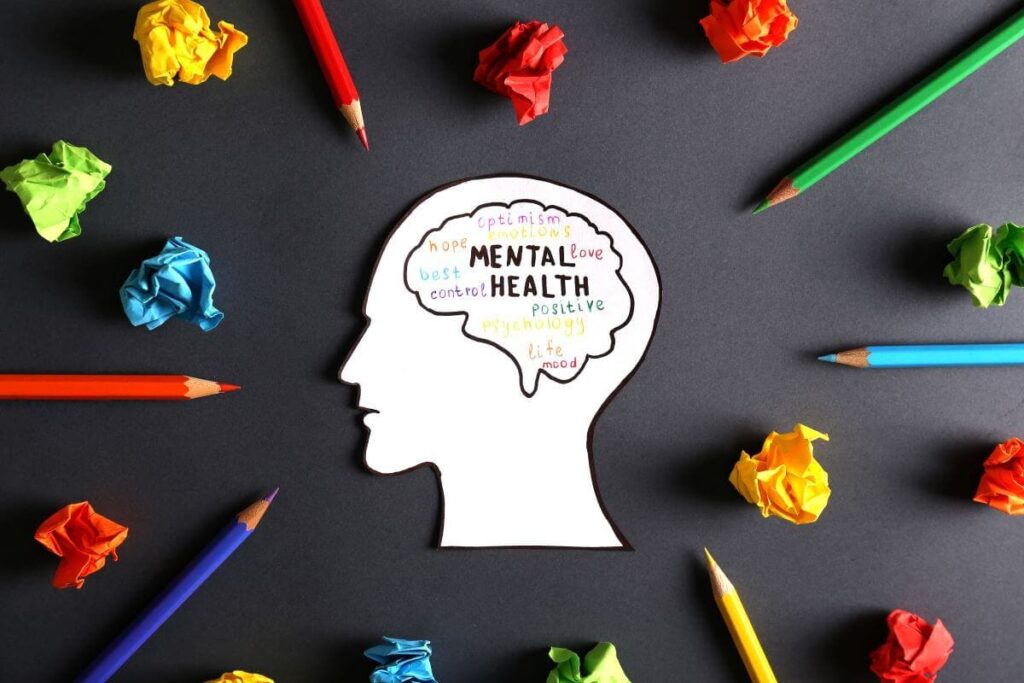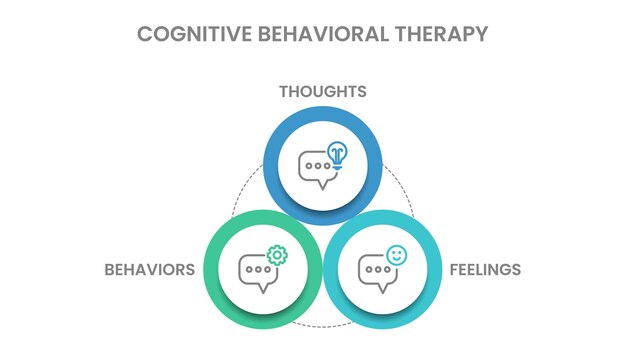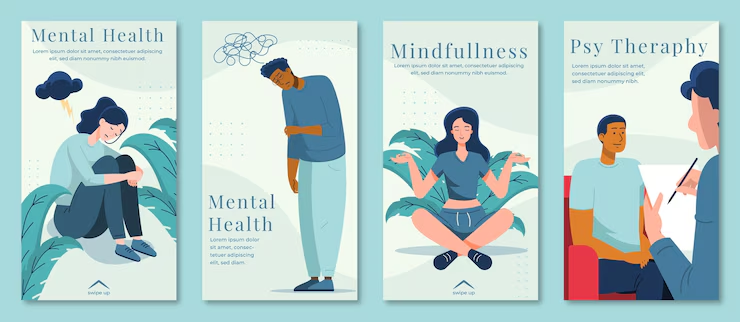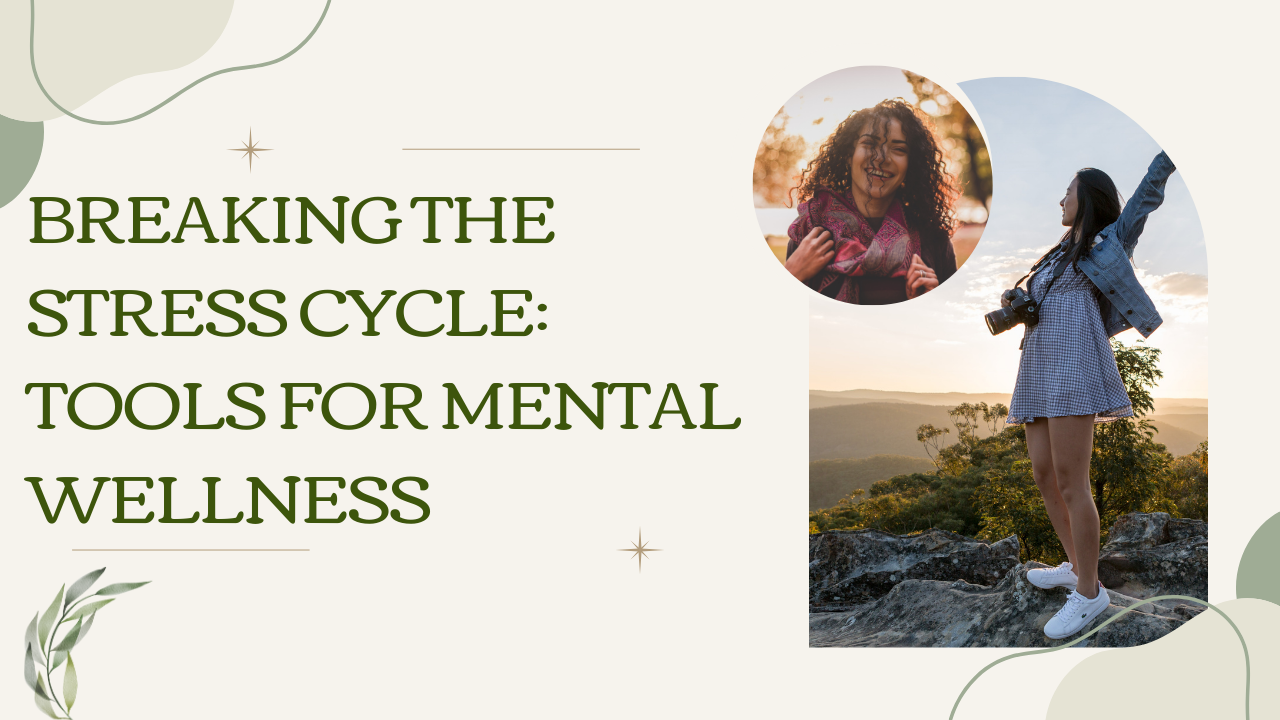In today’s fast-paced world, many people struggle with mental wellness, often without realizing how it impacts their overall health. Mental wellness involves emotional, psychological, and social well-being, influencing how we think, feel, and act. It’s crucial for overall health and happiness.
Achieving mental wellness requires understanding your emotions and dealing with stress in a healthy way. It means recognizing stress triggers, learning to manage emotions, and finding ways to keep balance in life. The goal is to feel in control of your mental state rather than being overwhelmed by it.
Breaking the stress cycle involves using tools that promote emotional balance. This could include practicing mindfulness, adopting healthy coping strategies, and making time for self-care. By managing stress and focusing on mental wellness, we can improve our emotional and physical health, leading to a happier and more balanced life.
Understanding Mental Wellness

Mental wellness goes beyond simply being free of mental illness. It’s about actively maintaining good mental health through self-care, healthy coping strategies, and building resilience. When we focus on mental wellness, we’re better able to lead fulfilling lives, handle daily stress, build strong relationships, and work towards our goals.
Unlike mental illness, which involves diagnosable conditions affecting thoughts, emotions, and behaviours, mental wellness is a continuous effort to support and improve one’s mental state. It’s about maintaining a balanced emotional and psychological state, helping us thrive in everyday life.
Mental wellness includes several dimensions, including:
Emotional Well-Being: Emotional well-being involves understanding, expressing, and managing your emotions in healthy ways. It’s about cultivating a positive mindset, showing kindness to yourself, and learning how to handle difficult emotions like anger, sadness, or anxiety. This also includes developing emotional resilience, which allows you to cope with challenges without becoming overwhelmed.
Psychological Well-Being: Psychological well-being refers to your overall mental state, which includes having self-acceptance, a sense of purpose, and a drive for personal growth. It’s about feeling good about who you are, having confidence in your abilities, and finding meaning in your life. This aspect of well-being also includes the ability to handle life’s challenges with resilience and maintain a healthy sense of self-esteem.
Social Well-Being: Healthy social connections play a crucial role in mental wellness. Positive relationships with family, friends, and a support network are essential for good mental health. Feeling connected to others, experiencing a sense of belonging, and having people you can rely on contribute significantly to emotional well-being and a fulfilling life.
Spiritual Well-Being: Spiritual well-being offers a sense of peace, purpose, and interconnectedness, whether through religion, personal beliefs, or a deeper sense of meaning in life. For many, spirituality helps to cultivate emotional balance, providing comfort in times of stress and a guide for living a meaningful life. It connects you to something larger than yourself, offering strength and stability.
Environmental Well-Being: Your physical surroundings play an important role in your mental wellness. A cluttered, stressful, or unsafe environment can heighten feelings of anxiety and burnout, while a peaceful, organized, and supportive space can encourage relaxation and mental clarity. Creating a positive environment, whether at home, work, or in your community, contributes to a sense of well-being and balance.
Importance of Mental Wellness
Maintaining mental wellness is crucial as it impacts all areas of life, including physical health, relationships, work performance, and overall quality of life. Good mental health helps us cope with stress, build strong relationships, and perform better at work. Prioritizing mental wellness contributes to a balanced, fulfilling life and enhances our well-being in every aspect. Here are a few key reasons why mental wellness is so important:

Improved Physical Health: Mental wellness plays a vital role in maintaining physical health. Chronic mental stress, anxiety, and depression can weaken the immune system, raise blood pressure, disrupt digestion, and even increase the risk of long-term health issues like heart disease. By prioritizing mental wellness, we not only improve emotional well-being but also strengthen our immune system and enhance overall physical health, making it easier to stay healthy and fight off illnesses.
Emotional Stability: People with good mental wellness tend to have better emotional stability. They are better equipped to handle difficult emotions, such as anger or sadness, and can remain calm during stressful situations. This ability to regulate emotions is crucial for coping with daily stressors and maintaining a balanced life. Emotional stability allows for healthier reactions in both personal and professional interactions, promoting well-being in all areas.
Better Relationships: Mental wellness significantly affects how we relate to others. When our mental health is in good shape, we are more likely to build strong, positive relationships. A balanced emotional state helps us communicate more clearly, show empathy, and better respond to the needs of others. These qualities create stronger bonds with family, friends, and colleagues, making it easier to build supportive networks and maintain meaningful connections.
Higher Productivity and Creativity: A healthy mind is essential for productivity and creativity. When we are mentally balanced, our thinking is clearer, and we are better able to focus and make decisions. Mental wellness promotes improved problem-solving abilities, critical thinking, and innovative ideas, which are vital for success in both work and personal life. Clear thinking also allows us to handle tasks more efficiently, boosting overall productivity.
Resilience in the Face of Challenges: Life presents many challenges, but mental wellness equips us with the resilience to face them head-on. People with strong mental health are more likely to recover quickly from setbacks, adapt to changes, and maintain a positive outlook during tough times. This resilience helps them navigate challenges with a sense of hope and determination, making it easier to stay on track and persevere despite obstacles.
The Stress Cycle
Stress is a natural response to life’s demands and challenges, serving as a biological reaction that helps us cope with emergencies or high-pressure situations. In the right amounts, stress can motivate us to act quickly and stay focused when needed.
However, when stress becomes constant or chronic, it can lead to emotional and physical exhaustion. The stress cycle occurs when stress continues to build up, overwhelming the body and mind. This cycle can be harmful, as it prevents the body from returning to a relaxed state.
The stress cycle begins with a stressor, such as work pressures, relationships, or health issues. This triggers a physiological response in the body, such as increased heart rate and the release of adrenaline. While this response can be helpful in short bursts, continuous stress without relief can have detrimental effects on both mental and physical health.
The cycle typically follows these stages:
Stress Trigger: A stress trigger is any event or situation that prompts the body’s stress response. These triggers can be external, such as a looming deadline, a work presentation, or relationship conflicts. They can also be internal, stemming from our thoughts and emotions, like negative self-talk or worrying about the future. These stress triggers activate the body’s natural response to prepare for action.
Physiological Response: When a stress trigger occurs, the body reacts by releasing hormones like adrenaline and cortisol. These hormones prepare the body to face the challenge by increasing heart rate, elevating blood pressure, and preparing muscles for action—this is known as the “fight or flight” response. While these reactions can be helpful in short bursts, prolonged stress can be harmful, as the body stays in a constant state of alertness.
Emotional Response: As stress continues, emotional reactions often follow. Feelings such as anxiety, anger, frustration, or sadness may arise, especially if the stressor is ongoing or unresolved. These emotions can further fuel the stress cycle, making it harder to manage or escape the stress. The emotional impact of stress can affect how we think, behave, and interact with others.
Behavioral Response: To cope with the stress, individuals may engage in various behaviors, which can be either positive or negative. Positive responses include healthy strategies like exercising, seeking support, or problem-solving. However, negative behaviors such as substance abuse, overeating, or withdrawing from social interactions are also common ways people attempt to manage stress. These coping strategies may offer temporary relief but can worsen stress in the long term.
Chronic Stress: If stress is not managed, it can lead to chronic stress, where the body remains in a constant state of heightened alertness. This ongoing stress can lead to burnout, mental health issues like anxiety or depression, and physical health problems such as digestive issues, high blood pressure, or heart disease. Without intervention, chronic stress can take a serious toll on both emotional and physical well-being.
Breaking the Stress Cycle: Tools for Emotional Balance
Breaking the stress cycle is crucial for mental wellness and emotional balance. Left unchecked, chronic stress can cause serious health issues and diminish quality of life. To break the cycle, various tools and strategies can be used, such as practicing mindfulness, engaging in regular physical activity, improving sleep, seeking social support, and adopting healthy coping mechanisms. These steps help restore emotional balance and prevent stress from overwhelming the body and mind.
- Mindfulness and Meditation

Mindfulness is the practice of focusing on the present moment without judgment. It helps break the stress cycle by encouraging awareness of the here and now, instead of getting caught up in past or future stressors. By bringing attention to the present, mindfulness helps reduce mental and emotional overload, allowing individuals to feel more grounded.
Techniques such as deep breathing exercises, body scans, and guided meditation are common mindfulness practices. These methods are proven to lower stress, reduce cortisol levels, and improve emotional regulation. Regular mindfulness practice can lead to a calmer mind, improved focus, and better emotional control, providing an effective tool to manage and reduce stress.
Deep Breathing: Focused breathing activates the body’s relaxation response, helping to counteract stress. Simple techniques, such as inhaling for four counts, holding for four, and exhaling for four, can calm both the mind and body, reducing the physiological effects of stress and promoting relaxation.
Meditation: Meditation is a structured mindfulness practice that trains the brain to manage thoughts and emotions more effectively. It creates a pause between stress triggers and emotional reactions, allowing individuals to respond more calmly and with greater control, reducing the impact of stress over time.
- Physical Activity and Exercise
Physical exercise is one of the most effective ways to manage stress. It triggers the release of endorphins, the body’s natural mood boosters, which help alleviate stress and elevate mood. Regular physical activity provides a healthy outlet for built-up tension, making it easier to cope with stress and clear the mind. Exercise also improves sleep quality, helping the body and mind recover and restore energy, which is essential for managing daily stress.
Incorporating exercise into your routine has long-term benefits for overall well-being. It not only enhances physical health by improving strength and endurance but also boosts mental clarity, focus, and emotional balance. By making exercise a regular habit, you can break the stress cycle, build resilience, and create a sense of calm, fostering both physical and emotional well-being.
Cardio Exercise: Activities such as running, cycling, or swimming get the heart rate up and are effective at reducing stress hormones in the body. These exercises not only improve cardiovascular health but also help relieve stress by promoting the release of endorphins.
Yoga and Stretching: Yoga combines physical movement, controlled breathing, and mindfulness to effectively reduce stress and enhance emotional balance. Stretching, on the other hand, helps release tension built up in the muscles, providing relief from the physical effects of stress and promoting overall relaxation.
- Cognitive Behavioral Techniques

Cognitive Behavioral Therapy (CBT) is a powerful tool for managing stress by addressing negative thought patterns that contribute to emotional instability. CBT helps individuals recognize and challenge unhelpful thoughts that fuel stress, encouraging healthier ways of thinking. By changing how we interpret situations, we can reduce their emotional impact.
For example, instead of catastrophizing a stressful event, CBT teaches individuals to reframe it by focusing on aspects they can control. This shift in perspective can help break the stress cycle, leading to a more balanced emotional response. By consistently practicing these techniques, individuals can improve their ability to manage stress and build emotional resilience.
Thought Stopping: Thought stopping is a technique where individuals consciously interrupt negative or stress-inducing thoughts and replace them with more positive or balanced thoughts. This helps break the cycle of rumination and reduces stress.
Cognitive Restructuring: Cognitive restructuring involves identifying distorted thinking patterns, such as believing “I can never do anything right,” and replacing them with more realistic and balanced thoughts. This shift helps promote a healthier mindset and reduces the emotional impact of stress.
- Social Support
Connecting with others is essential for managing stress. Having a strong social support network offers a sense of belonging and understanding, helping to reduce feelings of isolation and overwhelm. Engaging with loved ones provides emotional relief and reassurance, making it easier to cope with stress.
Talking to a friend, family member, or even seeking professional help can offer fresh perspectives during difficult times. Sharing your thoughts and feelings with someone else can help lighten the emotional load, offering comfort and guidance. Having people to rely on can be a powerful tool for navigating stressful situations and maintaining emotional balance.
Peer Support: Support groups or conversations with friends and family offer comfort, understanding, and a sense of solidarity. Sharing experiences with others can help alleviate stress and provide emotional reassurance.
Therapy: Speaking with a mental health professional, like a therapist or counselor, can provide valuable tools for breaking the stress cycle. Therapy helps individuals learn emotional balance and coping strategies to better manage stress and improve mental wellness.
- Self-Care Practices
Self-care involves activities that nurture physical, mental, and emotional health. It is essential for maintaining balance in life, preventing burnout, and managing stress effectively. By prioritizing self-care, individuals can recharge, refresh, and improve overall well-being.

Some common self-care practices include regular exercise, mindfulness, healthy eating, and sufficient rest. Taking time for hobbies, connecting with loved ones, and setting boundaries are also important for mental and emotional health. Including these practices into daily life can help reduce stress, Imrove resilience, and support long-term well-being, ultimately allowing individuals to handle life’s challenges with more ease.
Adequate Sleep: Getting enough restorative sleep is crucial for maintaining emotional balance. Poor or insufficient sleep can elevate stress levels and impair the body’s ability to recover from the physical and mental toll of stress. Sleep allows the brain and body to rest, repair, and rejuvenate, which is essential for managing stress effectively and maintaining overall well-being.
Nutrition: A well-balanced, nutritious diet plays a key role in regulating mood and energy levels. The foods we consume can affect brain function, hormone levels, and our ability to handle stress. By eating nutrient-rich foods, we support our body’s natural resilience to stress, improving both physical and mental health, and making it easier to cope with challenges.
Hobbies and Relaxation: Engaging in enjoyable activities, such as reading, crafting, or spending time in nature, provides a welcome break from daily stressors. These hobbies help redirect focus, reduce anxiety, and give the mind a chance to relax and recharge. Taking time for relaxation fosters emotional recovery, replenishing energy reserves and enhancing mental clarity to face new challenges with a balanced perspective.
Conclusion
Breaking the stress cycle and maintaining emotional balance is crucial for overall mental wellness. Chronic stress can negatively impact both the mind and body, leading to emotional instability and various physical health issues. Incorporating strategies such as mindfulness, regular exercise, cognitive-behavioral techniques, social support, and self-care into daily life can help interrupt the stress cycle and restore emotional well-being.
Prioritizing mental wellness isn’t just about managing stress—it’s an investment in a healthier, more fulfilling life. By actively focusing on emotional balance and adopting healthy coping mechanisms, we can reduce stress’s harmful effects and improve our resilience. This proactive approach enables us to face life’s challenges with greater ease, maintaining mental clarity, physical health, and overall happiness.
FAQs
What is the difference between mental wellness and mental illness ?
Mental wellness refers to a proactive, ongoing state of emotional, psychological, and social well-being, where an individual feels balanced and capable of handling life’s challenges. It includes positive emotional regulation, healthy coping mechanisms, and resilience. Mental illness, on the other hand, refers to specific diagnosable conditions like depression, anxiety, or schizophrenia that significantly impact a person’s thoughts, emotions, and behaviors.
How does chronic stress affect the body ?
Chronic stress can have severe physical health consequences. It can weaken the immune system, increase the risk of heart disease, cause digestive problems, elevate blood pressure, and disrupt sleep. Long-term stress also contributes to mental health issues like anxiety and depression. Over time, it can lead to burnout, making it harder for the body and mind to recover and maintain balance.
Can mindfulness really help reduce stress ?
Yes, mindfulness has been scientifically proven to reduce stress. Mindfulness practices, like meditation and focused breathing, help activate the body’s relaxation response, reduce cortisol levels, and improve emotional regulation. By staying present and non-judgmental, mindfulness allows individuals to respond to stress more calmly and effectively, preventing the escalation of stress and promoting emotional balance.
What role does exercise play in managing stress ?
Exercise is a powerful tool for managing stress. Physical activity stimulates the release of endorphins, the body’s natural mood elevators, which help reduce feelings of anxiety and depression. Regular exercise also helps manage stress hormones like cortisol, improves sleep, and boosts overall physical health, making it easier to cope with life’s challenges.
How can I tell if I’m experiencing chronic stress ?
Chronic stress may manifest in both physical and emotional signs. Common symptoms include persistent fatigue, irritability, sleep disturbances, headaches, muscle tension, digestive issues, and difficulty concentrating. Emotionally, you might feel overwhelmed, anxious, or disconnected. If stress becomes ongoing and is affecting your ability to function in daily life, it’s important to seek support from a healthcare professional or mental health provider.




